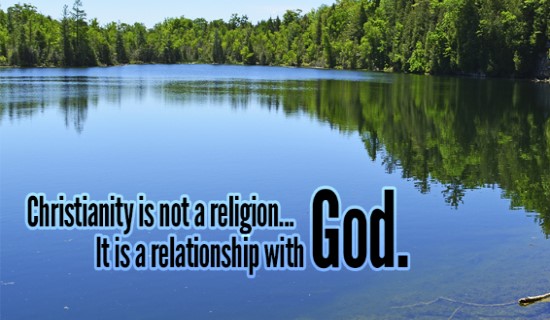 That I may know him. Philippians 3:10-11
That I may know him. Philippians 3:10-11
Graduations and marriages celebrate the month of June. Relationships end and begin as spring ends and summer begins, closing out old influences and promising new horizons of happiness. But every believer must understand that all relationships work the same, regardless of the setting, including the most important relationship, intimacy with our Lord Jesus Christ.
Life revolves around relationships. Whether one views the world from an astrophysical, sociopolitical, psycho-cultural or any other prism, this holds true. Secularists have tried to convince us that the universe is a massive collection of random objects and events with no transcendent purpose. Such a hypothesis strips the world of its intrinsic beauty and essence of meaning. But, when one pauses, steps back and drinks in all of life’s vast and complex interconnectivity, awe happens.
Relationships consist of complementary parts; of each individual part adapting to something or someone that completes it; of the bold and subtle, the light and dark, the loud and soft, and the large and small. Indeed, when God finished His work, symmetry and balance could be seen perfectly woven into His entire creation; the sun and moon, the evening and morning, the male and female, plants and animals, and the mountains and streams. Each element finds completion in its polar opposite, forever establishing the harmony that happens only in the bonds of relationship.
Relationship dynamics define the essential Christ life. If we are to understand scriptural terms of fellowship, communion, walking with God, following after God, living in the Spirit, discipleship, friend, working together and Christ in you, our new life must be seen in the context of relationship. It cannot work in isolation, unilateral functioning, independent-mindedness, avoidance or non-conformity. While the structure of the relationship places Christ as principal and us as subservient, the mechanics of the relationship work the same as any other arrangement. What one lacks, the other supplies. The highs of one needs the lows of the other. In the contemplation of God, divinity incorporated humanity to fully appreciate divinity.
God could have remained in a solitary state; He chose not to. One might speculate that God did not need to create man, and that is true in the strictest sense of the word. It begs the question, however, of man’s existence. If God didn’t need us, why are we here? He had the angels. The seraphim and cherubim recognized His divinity and praised him continuously. But they could do nothing else; they were created for this singular purpose. He created man differently. He made us free moral agents with the ability to assess, judge and decide who or what we would worship. He designed us to praise him cognitively, with understanding and appreciation, and with the power to determine the force, direction and quality of our worship. God did not have that in the angels.
This concept came home to me through two great mentors, J. L. Hall, long time Editor-in-Chief for the United Pentecostal Church, International, and Assistant General Superintendent, Jesse Williams. We were serving on a subcommittee that found the three of us alone in a conference room at World Evangelism Center, our organization’s headquarters in Hazelwood, Missouri. Since they were my elders, I took advantage of the situation to put a deep, probing question to both of them. I asked, “What do you think is the most important aspect of your ministry? What has kept you going in spite of every obstacle that you have faced over the years?” Without hesitation, each of them said, “My personal relationship with Jesus Christ is, by far, the most important thing in my life.” I recall that J. L. Hall said further, “I guard my relationship with Christ with everything I have. I will never let it be jeopardized by any circumstance or person.” There you have it. No greater secret will ever be found to spell success in living for Christ. It is all in the principle of relationship.
Thus, the need for a relationship-driven life with God becomes an inescapable conclusion in discerning mankind’s presence in the world. As we seek God, as we enter into a relationship with Him, as we define ourselves by His existence, we find fulfillment and significance. It is this revelation that bridges the divide between temporal and eternal, between randomness and purposefulness, between nihilistic void and rich meaning. Our entire purpose in life is to find—and refine—our relationship with God.